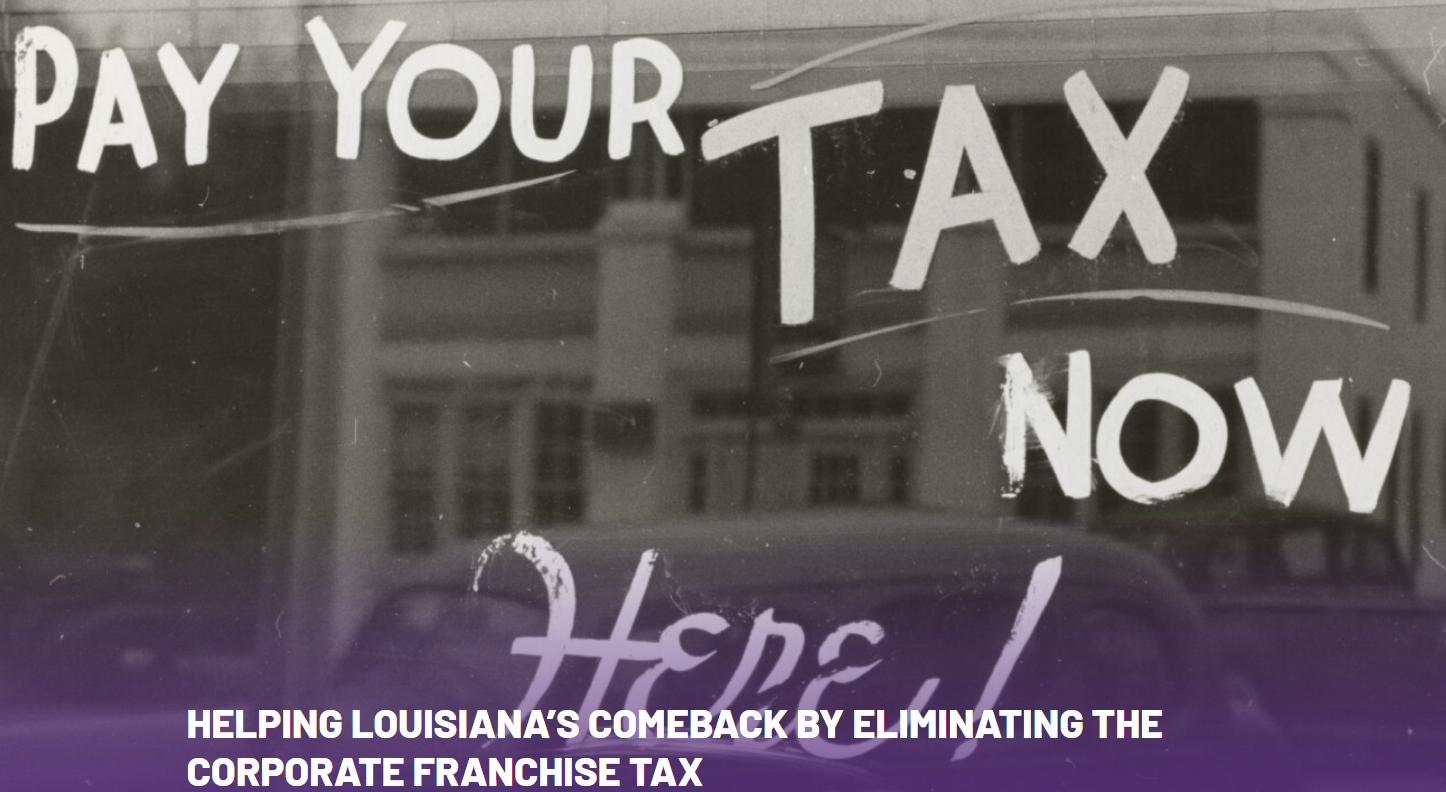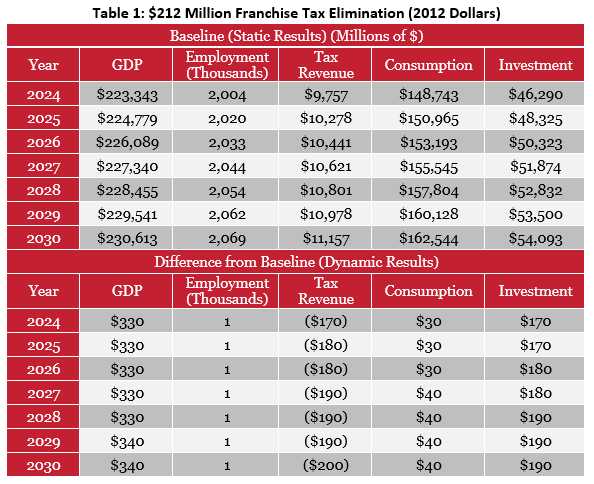|
There’s much discussion in Baton Rouge about how to best allocate scarce taxpayer money that’s overflowing the state’s coffers. A problem with $3 billion in the state’s savings accounts is that everyone has their hands out to receive some of it. But the ones who should be remembered first are the taxpayers. In this discussion, one of the bright spots is tax reform, particularly eliminating the state’s corporate franchise tax. The corporate franchise tax is levied annually on the taxable capital of corporations, including capital stock, surplus, and undivided profits. Unlike corporate income taxes, which are levied on a company’s profits, these taxes are imposed on a company’s net worth. Therefore, the tax penalizes investment and requires companies to pay the tax regardless of whether they make a profit. While it’s just three percent of the state’s revenue, it’s a large burden on businesses as only 16 states have one and two of them (i.e., Connecticut and Mississippi) are phasing theirs out. Louisiana should eliminate its corporate franchise tax, too. There were improvements to the franchise tax in the state’s 2021 tax reforms that reduced the rate and increased the minimum amount needed to begin paying the tax. Those reforms also included revenue triggers which would reduce personal income taxes and corporate franchise taxes if three revenue targets are hit. This tax could be reduced substantially this session. The first two triggers are already hit so the Legislature simply needs to add about $55 million to the rainy day fund to hit the final one and there could be at least a 50 percent cut in the corporate franchise tax rate. And State Senator Bret Allain’s SB 1 could help make this phase out more certain. Eliminating this tax would result in increased productivity, faster economic growth, higher consumption, and greater investment. We’ve been working with the Economic Research Center to examine the economic effects of eliminating this tax. Their model estimates the dynamic effects of tax changes on economic variables. Table 1 includes the dollar values reported in millions of 2012 inflation-adjusted dollars and are based on the estimates in the Congressional Budget Office’s February 2023 economic projections. Employment is represented by full-time equivalent non-farm jobs, in thousands of jobs. Removing this tax on capital would support more investment and economic output over time with the largest effect in the first year. Their results show that eliminating the costly corporate franchise tax would result in gross domestic product (GDP) increasing by $330 million, with employment increasing by at least 1,000 jobs, consumer spending increasing by $30 million, and investment jumping by $170 million in 2024.
And the inflation-adjusted value of a $212 million franchise tax cut would result in just $170 million in reduced total tax revenue because the increased economic growth, employment, and investment contributes to higher collections in other taxes, such as the personal income tax because there are more people working. Of note, the temporary reduction in tax revenue won’t affect the state’s budget. Over the last three fiscal years, the state has seen a boom in corporate income and franchise tax revenues, such that, according to law, anything collected over $600 million in this category automatically goes into a savings account—the Revenue Stabilization Fund—to help offset future decreases in revenue. This money is not even in the state’s operating budget, so it won’t be missed. Louisiana is hemorrhaging people and businesses as they move to other nearby states with better tax systems. The Legislature has a chance to stop the bleeding so the state and Louisianans can heal and become more prosperous over time. There’s a great opportunity to do so now. Lawmakers can pass a responsible budget, activate revenue triggers for tax relief, and set the state on a path toward ending this punishing tax so our state can be competitive. Originally published by Pelican Institute.
1 Comment
7/23/2024 11:04:32 am
I genuinely believed you would probably have something useful to say. All I hear is a bunch of whining about something that you can fix if you were not too busy looking for attention. After all, I know it was my choice to read..
Reply
Leave a Reply. |
Vance Ginn, Ph.D.
|



 RSS Feed
RSS Feed